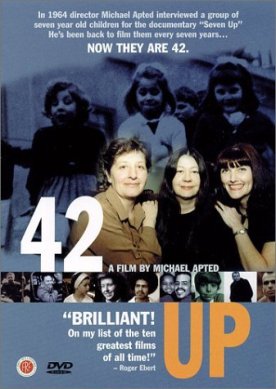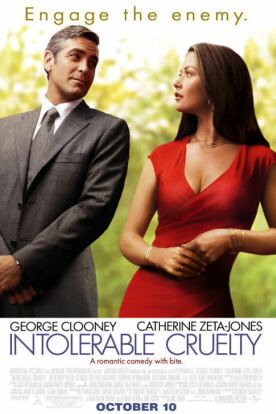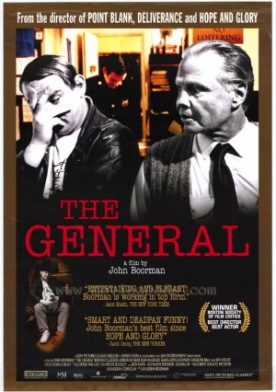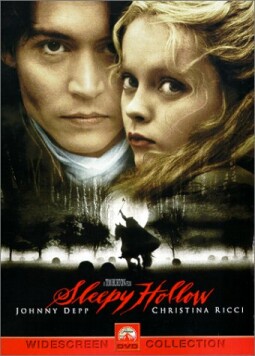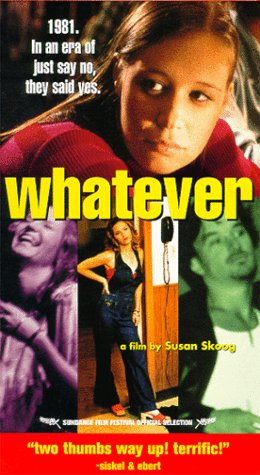42 Up
42 Up, the sixth in Michael Apted’s fascinating series of documentaries about a group of English schoolchildren first introduced to us at the age of seven in 1964, is the best yet. In a way this was predictable, since at 42 the sense of youthful expectation in which anything still seems possible has at last dissipated and, in most lives, a permanent course has been set which may complement or contrast with one’s earlier promise but which is unlikely to change very much henceforth. At the least, Act II has begun and the ultimate shape of the drama has been made clear, and in most cases the peripeteia of life has already taken place—the marriage, the divorce, the move, the career change—from which all else will follow. Apted’s subjects know this—as nearly all of us do by the age of 42—and so he catches them at the moment when they are facing up to the reality of what they have made of their lives so far.
It is a difficult and emotional moment and makes for absolutely riveting cinema—which, by the way, is not at all of a kind that Apted expected when he started out on this extraordinary journey 35 years ago. Then, he thought he was going to be telling us something about the British class system, a subject that was almost an obsession for British intellectuals of the 1960s. That is why he chose half his subjects from posh private schools and half from children’s homes. As we might have expected, the posh kids now tend to be lawyers and professors while the non-posh ones tend to be taxi drivers and secretaries, but what stands out about them in the aggregate is how little interest or importance attaches to the class differences by this stage of their lives. No one is either immensely rich or desperately poor. There is more a sense of guilt among the posh than of resentment among the unposh, but both are much more concerned about the opportunities they have missed than those that society has or has not given them.
Above all, there is the common bond provided by the amount of hard living nearly all the subjects have invested in their marriages, or other form of love lives, and childbearing. They have now arrived at the state of middle-aged wisdom when you realize, as one of them says, that “Until you go through it on your own, you never realize what hell you put your parents through.” Tony, the unforgettably cheery Cockney taxi driver sets the tone for the two hours and more to follow by wryly noting that “I must say, it’s not easy being married.” He, we learn, has been detected in infidelity and, with a typically robust sense of moral consequence, notes that “when you get caught with your hand in the till, you pay the price.” The expression on the face of ’er indoors, his dour and plump wife Deb, who insists she would have left the bum if it hadn’t been for the children, tells us all we need to know about the price he is paying.
And yet Deb, whom we also see in happier times with Tony from the earlier films, also says that “there is still something there” with Tony—and we can believe her. Altogether, there are more happy couples than unhappy, it seems, and Bruce, who at seven wanted to be a missionary and “teach people who are not civilized to be more or less good” and now teaches the children of immigrants in a Catholic girls’ school in the East End of London, sums it up when he says with seeming resignation that “Middle-aged content is the best description” of his life at 42. Oddly, he has come to this state of mind later than almost anyone else. He only married for the first time last year, to a teaching colleague called Penny, and even his teaching job is relatively new. At 35 he had been in Bangladesh, living something close to the “missionary” life he had projected for himself at seven. Now he talks about doing good by working toward “a more harmonious, multicultural society” and staying in the classroom instead of moving up into an administrative position. Penny tells us that “He’s the nicest person I’ve ever met; just someone you can rely on the whole time.”
This assessment is borne out by what we see of his friendship with Neil, the troubled young man whom we remember living in a London squat, a derelict trailer in the north of England and a council estate in Shetland in earlier films in the series. Now Neil is back in London, where he has been able to get back on his feet (as much as, probably, he ever will be on his feet) after staying with Bruce for two months. “He’s been a good, loyal friend,” says Neil, who is shown giving a blessing at Bruce and Penny’s wedding. It is the only friendship among Apted’s subjects, yet it is not exactly an ordinary friendship either. Neil is a damaged personality, whom we see in earlier films describing himself as “eccentric,” saying that he would cut his throat if he had to live in the suburbs and objecting strenuously to the “horrible question” of what he thinks he might be doing in another seven years. At 28 we see him answering the question, “Do you worry about your sanity?” with a truculent: “Other people sometimes worry about it.” Now he is asked, “Do you sometimes think you’re going mad?” by confiding: “I don’t think it, I know it.”
But, he swiftly adds, “I don’t like the word ‘mad.’,” and adds that he has never been happier. In fact, though he is still living on the dole (as he has done all his life), he has also managed to get himself elected as an unpaid, Liberal-Democratic member of the Hackney council where he feels useful for perhaps the first time in his life. How strange to hear this man, who seems to have spent most of his adult life in a state of depression, say that “the most enjoyable thing in life is looking to the future” ! Yet he also adds that “I always told myself that I would never have children”—for fear that they would inherit his tendency to unhappiness. After looking like the odd man out in so many of the earlier films, Neil with his odd combination of hope and despair now offers to our view a kind of summing up of all the subjects’ state of mind in early middle age.
Now, the odd ones out are John and Charles, two of a trio first encountered at their posh prep school in 1964 who have declined to take any further part in the series—though one of them, Charles, is himself a producer of documentaries for British television. The third, Andrew, is perfectly amiable and cooperative, a prosperous lawyer with a charming wife and children, but he, too, seems somewhat uncomfortable in front of the camera. Perhaps it is because of the un-Britishness of this public inquiry into people’s private lives—or perhaps it is because the difficulty of facing up to what you have become at 42 is particularly difficult for the privileged, who have had more opportunities to miss. We see a clip of John from earlier in the series foreshadowing his later exit from it as he tells how he “bitterly resents” what to him has become “every seven years a little pill of poison.” Such an attitude is entirely understandable. How many of us would willingly submit to such a pitiless assessment of our more or less pitiable lives? We must just be grateful that so many of Apted’s kids still do.
Discover more from James Bowman
Subscribe to get the latest posts to your email.

